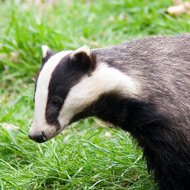
Media reports say culling may resume in three areas this summer
Badger culling may restart in Somerset and Gloucestershire this summer, with a new cull zone in Dorset, according to media reports.
Quoting "Whitehall sources", the Sunday Times reported an announcement from Defra is expected this week, but another three years of culling is planned in Somerset and Gloucestershire, and four years in Dorset.
The Times added that plans to introduce culls in Devon and Cornwall have been dropped for now.
However, Defra has said it will consider the report of an independent expert panel (IEP) before coming to a decision on the future roll-out of the culls.
The panel was commissioned to assess the safety, humaneness and efficacy of last year's pilot culls.
Findings from the IEP's report were recently leaked by the BBC, suggesting the culls failed on both humaneness and efficacy. It is thought the report will be officially published this week, according to The Times.
Last year's pilot culls in Somerset and Gloucestershire were both extended beyond the initial six-week period, yet failed to meet the target of killing 70 per cent of badgers.
Culling was introduced to tackle the spread of bovine TB from wildlife to cattle.
Martyn Underhill, the county's police and crime commissioner, told the BBC earlier in the year that a badger cull in Dorset is looking "increasingly likely".
A recent debate in parliament saw 219 MPs vote against a roll-out of the badger culls across the country. Leading the cross-party group, Mrs Anne Main said last year's pilot culls had "decisively failed" to meet Defra's criteria.



 The Greyhound Board of Great Britain has published new vaccination guidance, with all greyhounds registered from 1 January, 2027 required to have the L4 leptospirosis vaccination, rather than L2.
The Greyhound Board of Great Britain has published new vaccination guidance, with all greyhounds registered from 1 January, 2027 required to have the L4 leptospirosis vaccination, rather than L2.